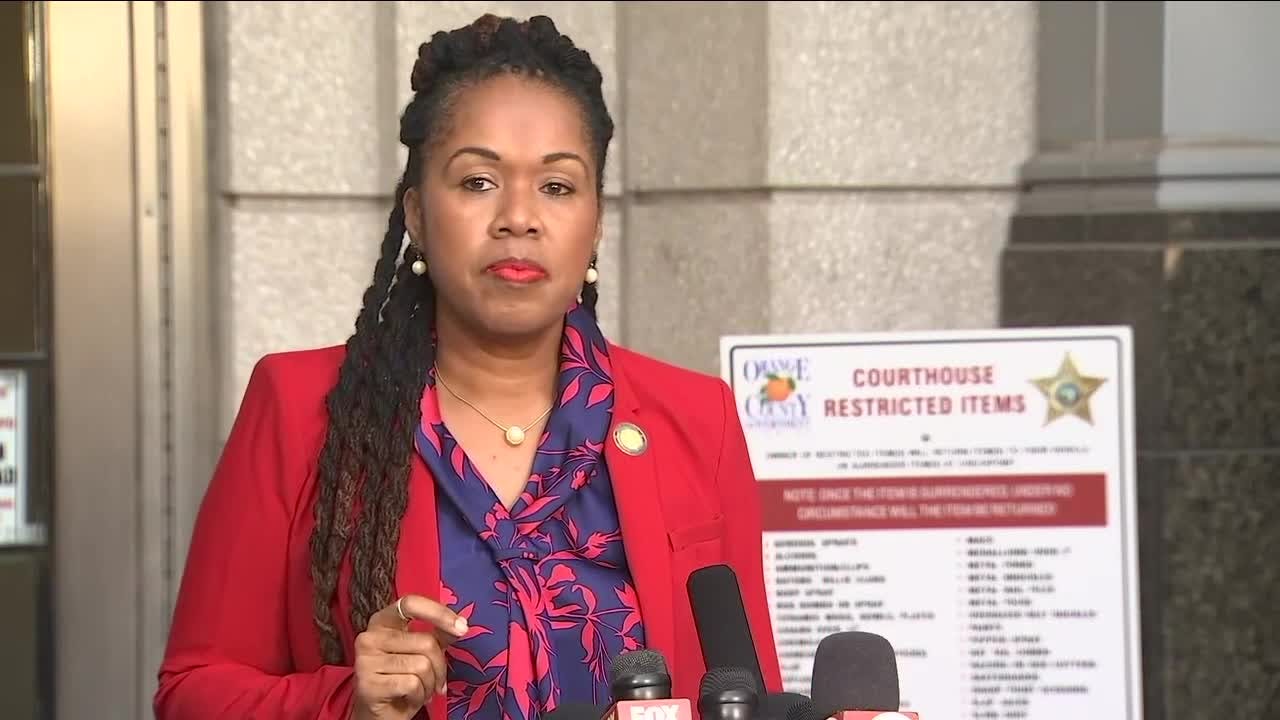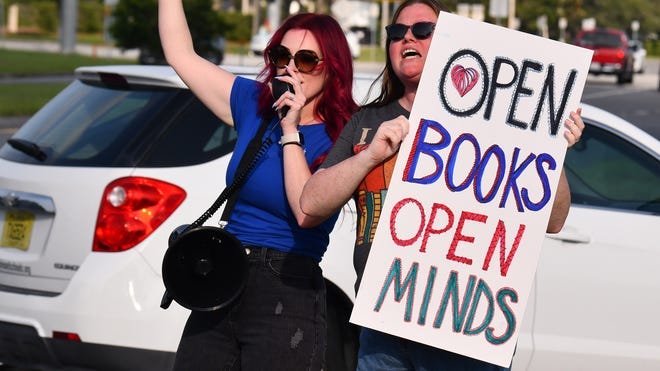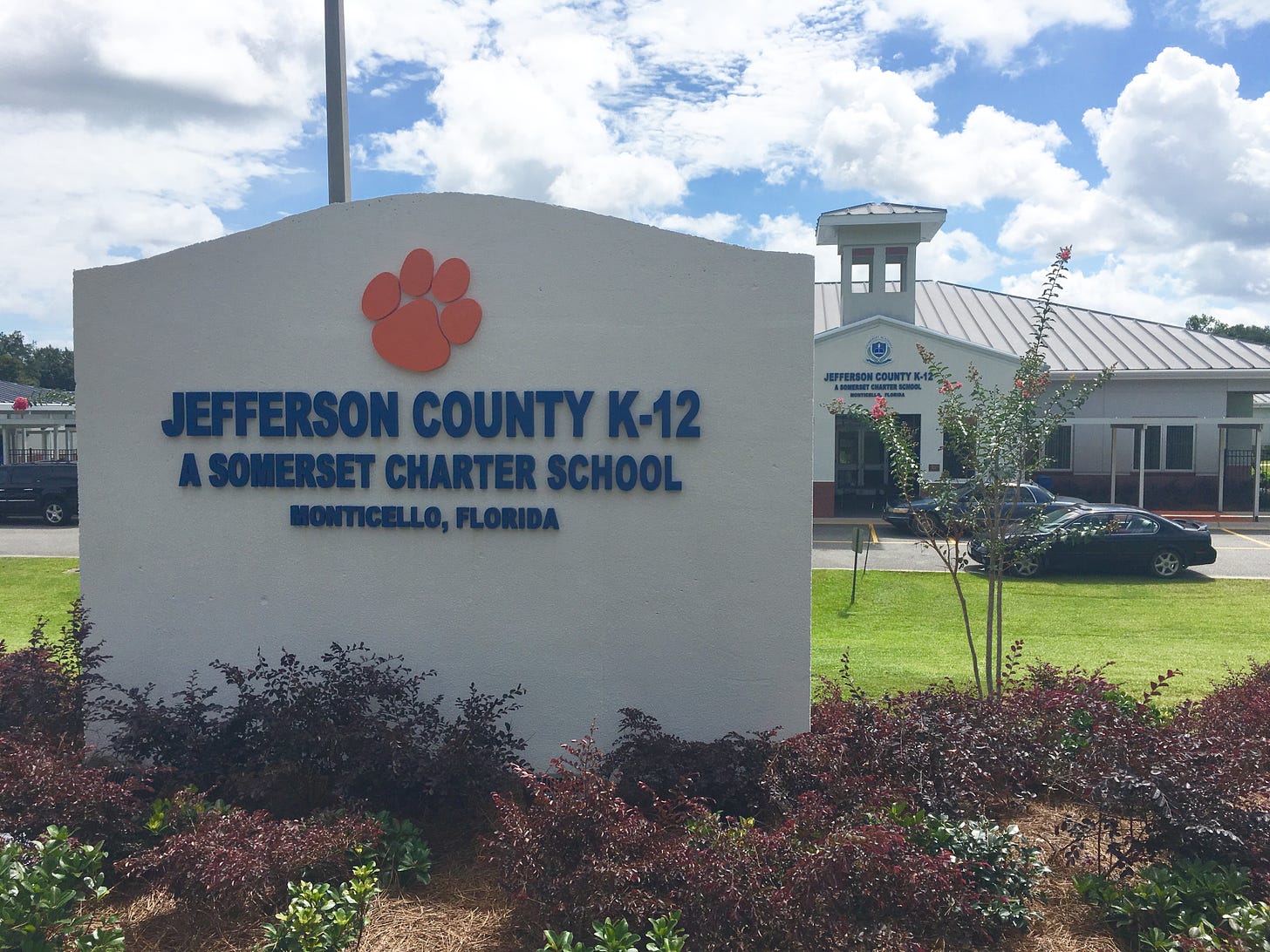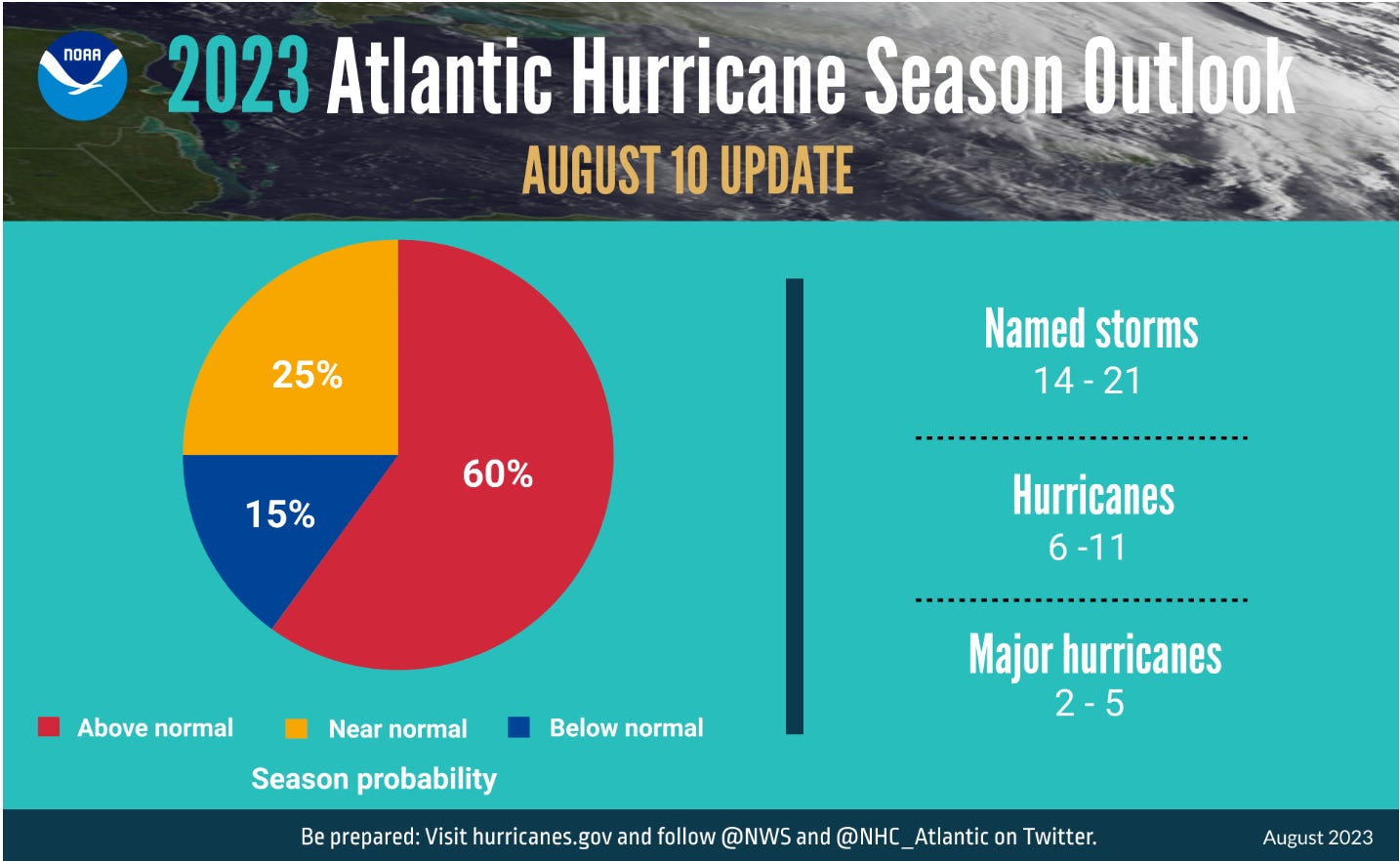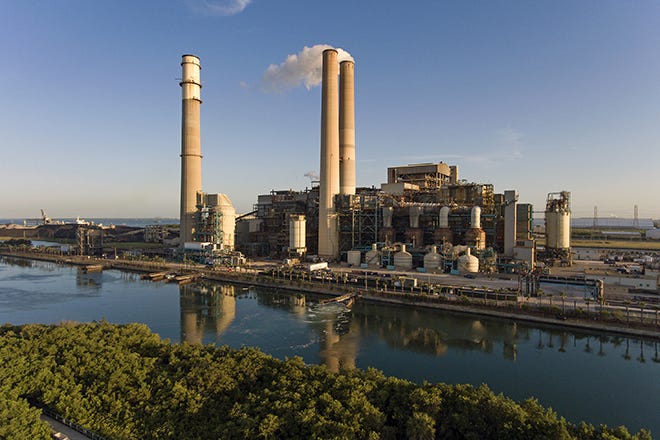DeSantis suspends another state attorney & teaching of Shakespeare pulled from some schools over content fears
August 21, 2023 — This Week's Top Stories in Florida
Welcome to this week’s edition of Floridian Today, a newsletter about all things Florida — from politics, business, real estate, and climate. Reporting from the Sunshine State, these are the most important stories you need to know. To never miss an update, subscribe here:
Here’s the latest from Florida…
DeSantis suspends another state attorney
Gov. Ron DeSantis has suspended Orange-Osceola State Attorney Monique Worrell, accusing her of not enforcing mandatory sentences for crimes involving guns and drugs, and for allowing juveniles to avoid incarceration. This marks the second time DeSantis has suspended a prosecutor from office, the first being Hillsborough State Attorney Andrew Warren last August. He stated that the elected prosecutor for the 9th Judicial Circuit, representing Orange and Osceola counties, abused her prosecutorial discretion and “nullified certain laws in the state of Florida.” Worrell, a Democrat, and the second Black state attorney to serve the judicial circuit since being elected to office in 2020, defended her actions, stating that the suspension was politically motivated and aimed to boost his “failing” presidential campaign. She asserted that the high incarceration rates in the U.S. and Florida have had little effect on reducing crime and advocated for giving second chances to defendants. In announcing the suspension, DeSantis cited cases where Worrell's office did not act to charge individuals who later committed serious crimes, including the shooting of two Orlando police officers by a man on probation and a teenager who had been previously arrested for gun crimes and later murdered his girlfriend. He emphasized cases where Worrell did not seek to charge juvenile offenders as adults and avoided pursuing mandatory minimum sentences for drug trafficking and felony possession of a firearm. The police union also levied its own criticism against the prosecutor’s handling of cases. Worrell's suspension was met with backlash from Democrats, who argued that DeSantis was undermining democracy by removing an elected official. Standing alongside the governor during the announcement in Tallahassee, Attorney General Ashley Moody supported the decision, citing high rates of dismissing or not filing charges compared to other counties with Democratic prosecutors. Judge Andrew Bain of the 9th Judicial Circuit has been appointed as the new state attorney.
Schools pull Shakespeare from curriculum over fears of sexual content
Several Florida school districts are opting to limit the teaching of Shakespeare and other classic literature due to concerns about complying with a new state law restricting books with sexual content. Hillsborough County is among those limiting instruction on Shakespeare's works, allowing only excerpts of plays such as “Romeo and Juliet” to be taught versus allowing the entirety of its context. The decision has sparked controversy, with some educators and officials criticizing the move as excessive. Orange County temporarily pulled four Shakespeare plays and other classic books, stating it was awaiting state clarification on what can remain and not run counter to state law prohibiting literary sexual content. Despite these actions, the Florida Department of Education has emphasized that it does not believe Shakespeare should be removed from classrooms and that his works are included in the state standards. In fact, education commissioner Manny Diaz Jr. has recommended “Romeo and Juliet” on his August books of the month list. Other school districts in the Tampa Bay area have not preemptively removed Shakespeare or restricted other specific authors.
Federal grand jury investigates state education department
A federal grand jury is actively investigating allegations of bid-rigging involving the Florida Department of Education, charter school operators, and a small North Florida school district. The investigation centers on claims of favoritism and impropriety in awarding contracts to politically connected companies linked to key figures in DeSantis' administration. In June, federal authorities issued a subpoena to the Jefferson County School District, seeking communications between district officials, charter school lobbyists, and former top officials in DeSantis' education department. This probe comes after previous allegations of bid-rigging involving Jefferson County’s school district, which was privatized by the state under Corcoran’s leadership and is now operated by a private charter school company. The subpoena also requested documents related to the department's attempt to direct a multimillion-dollar contract to a politically connected company with ties to DeSantis' former education commissioner, Richard Corcoran. Additionally, the procurement process was restarted after two former high-ranking education department officials created their own consulting company and filed a competing bid to oversee the rural three-school district. The contract would have been funded by federal coronavirus relief funds. While the subpoena does not mention Corcoran, it names other officials and parties involved. The federal investigation is ongoing, and the involved parties are yet to comment on the matter.
DeSantis expresses support for offshore drilling, with exception for Florida
While campaigning for president in New Hampshire, Gov. DeSantis has expressed support for offshore drilling and fracking in the U.S. as part of his plan for "unleashing American energy independence," but with the caveat that these activities should not occur in Florida. DeSantis is campaigning for expanded energy production while ensuring Florida's coastlines are without rigs, refineries, or pipelines. He clarified that a constitutional amendment in the state that forbids offshore drilling would be “honor[ed]” and not apply to other Gulf states like Louisiana or Texas. During his reelection campaign for governor, DeSantis advocated for protecting Florida's beaches due to their essential role in the state’s economy and even proposed a statewide ban on fracking, which hasn’t materialized. The Republican governor has touted himself as a proponent for energy independence by utilizing domestic resources but has offered little insight into his views on renewable energy investment during his presidential bid.
NOAA increases likelihood of ‘above-normal’ hurricane season
The National Oceanic and Atmospheric Administration (NOAA) has revised its most recent hurricane outlook, increasing the likelihood of an above-normal hurricane season to 60%. In the updated forecast, NOAA anticipates 14 to 21 named storms, with six to 11 potentially becoming hurricanes and two to five reaching major hurricane strength. This shift reflects the scorching Atlantic sea surface temperatures that counterbalance the weakening impact of El Niño, typically known to inhibit tropical activity. The record-breaking sea surface temperatures in June and July have contributed to the formation of storms and increased the probability of more severe systems. NOAA's initial May prediction suggested only a 30% chance of an above-normal season. With 70% confidence in their updated forecast, the administration urges preparedness as the peak of hurricane season approaches. Historically, about 90% of tropical storm activity occurs during September, making it crucial to plan and gather supplies ahead of time.
Florida loses millions in gas tax funds with electric vehicles
As electric vehicle (EV) adoption grows, Florida's gasoline tax revenue, a primary source of transportation project funding, is expected to decline, according to state economists. The analysis from the Florida Revenue Estimating Conference highlights that the "market share of electric vehicles in Florida is expected to increase significantly over the next 10 years," driven by factors like more affordable prices, increased charging station availability, and longer battery life. This trend will exert downward pressure on gas tax collections, reducing the state's main funding source for transportation projects. Florida currently collects around 25 cents per gallon in gas taxes or about 1.82 cents per mile. A previous legislative analysis shows that non-combustion vehicles cost local and state governments about $58 million per year. Weighing the imminent impact of EVs on new vehicle fuel economy, lawmakers proposed an annual license plate registration fee of $200 for EVs and $50 for plug-in hybrids to ensure everyone is paying for road construction and maintenance. However, it will take several years before the full impact of the gas tax affects the overall vehicle fleet in Florida. Existing gas-powered vehicles are expected to remain in use for at least a decade. Florida boasts the third-largest electric vehicle charging infrastructure in the country, behind California and New York.
Tampa Bay tourism slows after record-breaking growth
After experiencing a robust post-COVID tourism surge, the Tampa Bay region's hospitality sector is witnessing a slowdown. Both Hillsborough and Pinellas counties have seen consecutive months of declines in tourist tax collections, while Pasco County has observed a more than 5% drop in monthly hotel occupancy rates. Industry experts, however, remain optimistic, attributing some of the decline to increased travel options worldwide as the global economy reopens after the pandemic. Last year's exceptional tourism performance, driven by pent-up travel demand as pandemic restrictions eased, is seen as a contributing factor to the current slowdown. While tourist tax collections have fallen in recent months, both Hillsborough and Pinellas counties are on track to surpass their previous year's records. In fact, Hillsborough is set to hit a more than 14% annual increase in tourist tax collections while Pinellas is expected to see a 4.85% increase over the 12-month period that ended June 30. Pasco County has seen a year-over-year tax growth as well, but as with Hillsborough and Pinellas, May and June bed tax collections were down from last year. This trend has been seen across the state of Florida as hotel occupancy has lagged amid increased international and domestic travel competition. Despite the current tourism cooling trend, industry leaders express confidence in the overall stability and performance of the tourism market.
Solving the affordable housing crisis: Former state lawmaker believes the key is local government
Following 12 years in the Florida Legislature, former state senator Jeff Brandes is taking on the state’s housing crisis with his non-partisan think tank, the Florida Policy Project. With research revealing that half of all renters in the state allocate over 30% of their income to rent, and nearly 950,000 low-income households spend over 50% of their earnings on housing, Brandes highlights the need for solutions. In an interview with the Tampa Bay Times, he emphasizes that the crisis requires local governments to adopt zoning changes to encourage more housing construction in desired communities. Brandes suggests smaller lot sizes, accessory dwelling units, and less restrictive zoning. He asserts that while state incentives are crucial, solving the issue largely depends on local governments implementing changes, highlighting St. Petersburg's progress with loosening zoning restrictions, increasing density, and expanding eligibility of accessory dwelling units. The former Republican lawmaker proposes that the state tie affordable housing funding to communities embracing progressive zoning, and potentially penalize those that do not, utilizing Tallahassee to provide both incentives and penalties to address the housing crisis.
Tampa Electric sets summer power demand record two days in a row
As August temperatures soared, Tampa Electric (TECO) faced back-to-back records for customer power usage last week when the Tampa Bay area faced sweltering conditions. The company's more than 800,000 customers set a summer electricity consumption record in two consecutive days, surpassing TECO’s previous all-time record for electricity use. On August 8, customer electricity use reached 4,640 megawatts, followed by usage of 4,754 megawatts 24 hours later. However, the company’s highest-ever power use occurred during winter – in January 2010 – when 4,760 megawatts of power were used in a single day. For comparison, an average Florida household consumes about 58 megawatt-hours of electricity in one year. Tampa Electric serves customers across a 2,000-square-mile service area in Tampa Bay, including Hillsborough County and parts of Pasco, Pinellas, and Polk counties. This summer, power usage has peaked for both Tampa Electric and Duke Energy, another major energy utility firm serving about 1.9 million customers in Florida. Duke has neared its record power usage, reporting approximately 9,400 megawatts of usage daily among its state customers. TECO can generate over 5,000 megawatts of electricity via its three power plants while Duke can generate a capacity of 10,500 megawatts in Florida. While the state is at low risk for blackouts, the higher customer power use and additional strain on the electric grid this summer means users are likely to pay more.
Amazon founder Jeff Bezos purchases $68M home in Miami’s billionaire enclave
Jeff Bezos has bought a $68 million waterfront estate on the exclusive man-made barrier island in Miami, famously dubbed the "Billionaire Bunker." The property, situated in Indian Creek Village, will make Bezos a neighbor to prominent figures like Tom Brady, Ivanka Trump, and Jared Kushner. The three-bedroom home spans 2.8 acres and boasts 9,300 square feet of living space along with a pool. The purchase marks Bezos' expanding real estate portfolio and the Miami Palmetto High School graduate’s return to South Florida after spending most of his adult life building Amazon in the Seattle metropolitan area.
Thanks for reading this edition of Floridian Today. To never miss an update, subscribe for free:
In the meantime, if you learned something or found this read interesting, please consider sharing it to grow our community!



